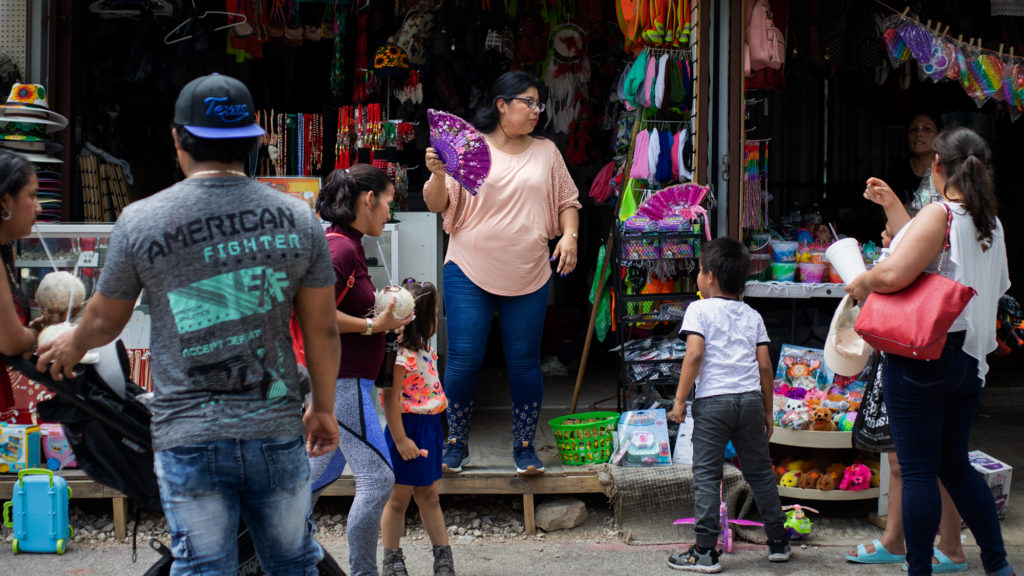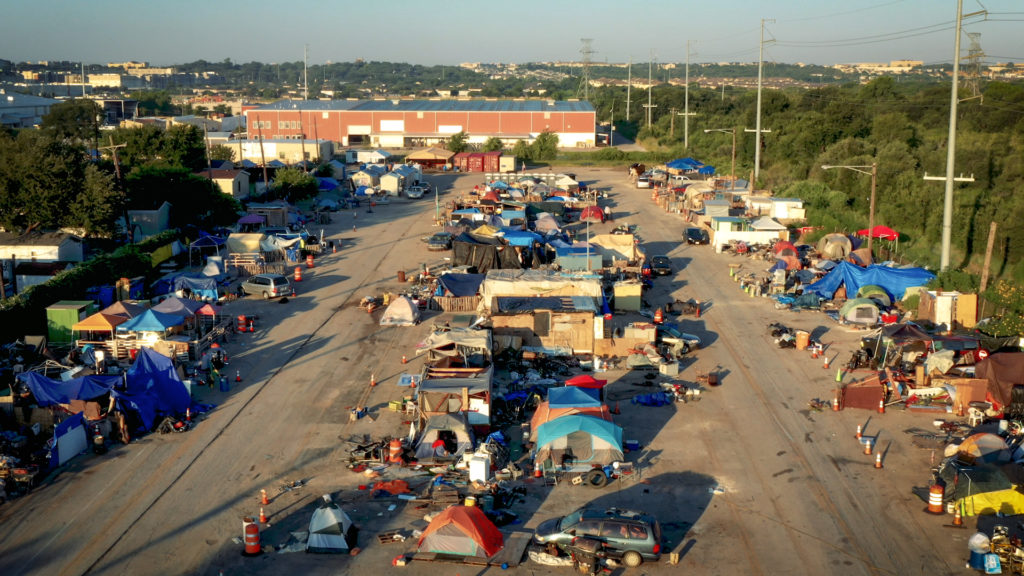Click the “play” icon on the image above to watch a short film about the Rural Broadband Cooperative.
According to an assessment by the Federal Communications Commission (FCC) in 2019, 95 percent of Pennsylvania has access to broadband internet — based on self-reporting from Internet Service Providers. But a study by the Center for Rural Pennsylvania (CRP) that same year showed otherwise.
Based on 11 million internet speed tests across the state, the CRP report found that median internet speeds across most areas of Pennsylvania did not meet the FCC’s own criteria for broadband connection. The same report said fewer than half of residents in any given county have access to broadband connectivity.
This comes as no surprise to Henry McCreary, general manager of the Rural Broadband Cooperative (RBC) based in Huntingdon County in Central Pennsylvania.
“You’d think that all of the United States would have excellent internet,” McCreary says. “Well, it doesn’t. Every time we talk to somebody about internet service, we get a long, painful story.”
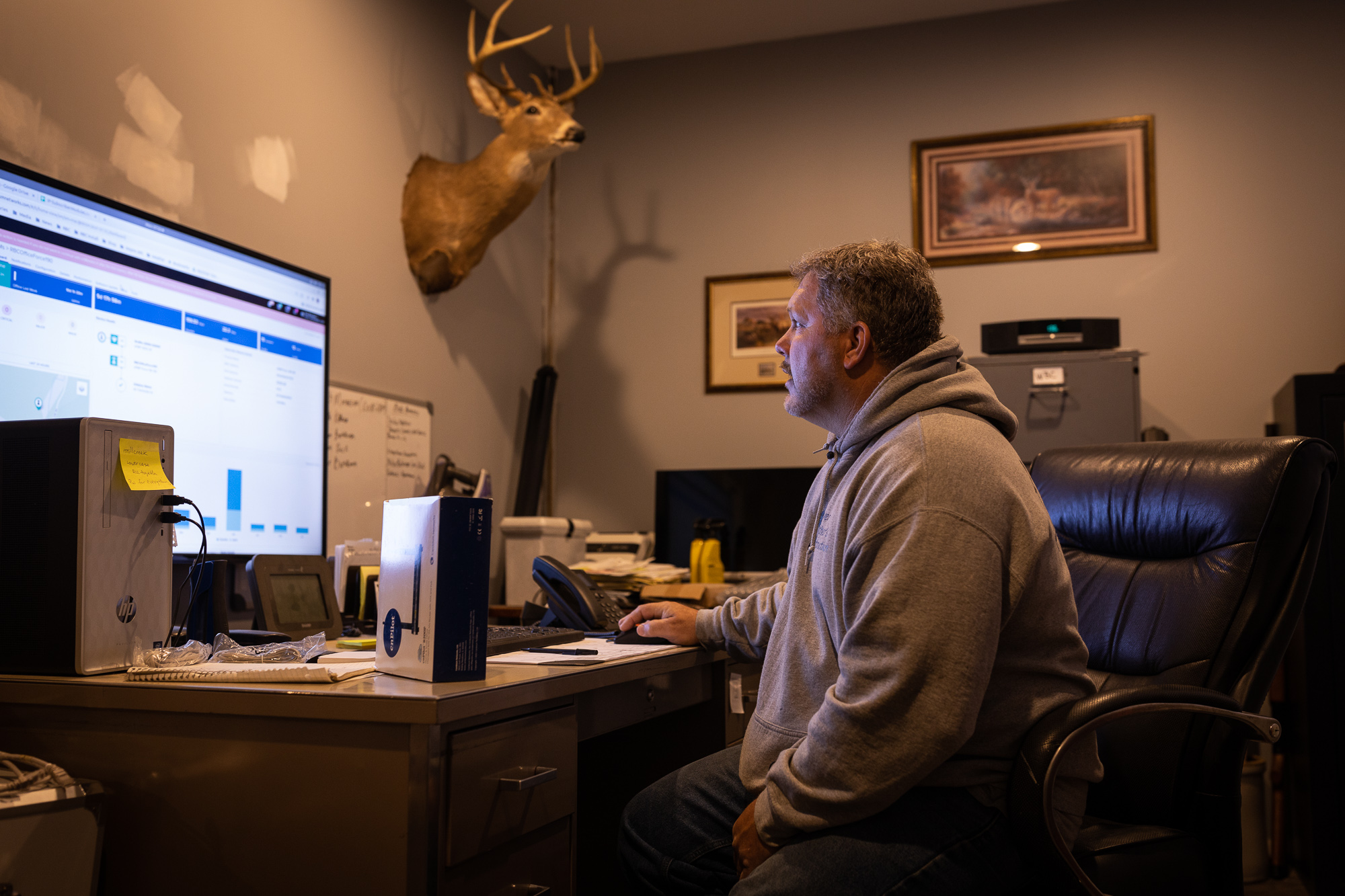
Rural Broadband Cooperative installer and board member Brian Weaver checks on the network from his office in Mill Creek Hollow, a rural community in Huntingdon County, Pa. “It’s great here,” Weaver says. “It’s even better with good internet, obviously. We’re finding that people don’t want to move to the rural areas anymore if they can’t have an acceptable internet service.”
Such stories often describe experiences with large communications companies — slow internet speeds, random outages, long waiting periods for customer service, and high prices given the quality of service.
“We had like one megabyte per second or something,” says Deborah Grove, an installer and board member for RBC. (The FCC’s definition of broadband is 25 megabytes per second downloading, and 3 megabytes per second uploading.) “That was enough for the company to say, ‘Well, you’ve got some [internet].’ But we really couldn’t function very well like that.”
Frustrations like Grove’s are what spurred the creation of Rural Broadband Cooperative in 2017. The effort began with a group of concerned neighbors who gathered for a town hall meeting at the local firehouse to try and find a solution. They quickly realized that if they wanted better internet, they were going to have to make it happen themselves.
Rural Broadband Cooperative now provides wireless internet service to approximately 200 customers in Mifflin and Huntingdon Counties. The service comes from a statewide fiber-optic network that serves universities and other public institutions across Pennsylvania. RBC plugs into the network in Allensville, about 10 miles away from Mill Creek, where RBC first got its start.
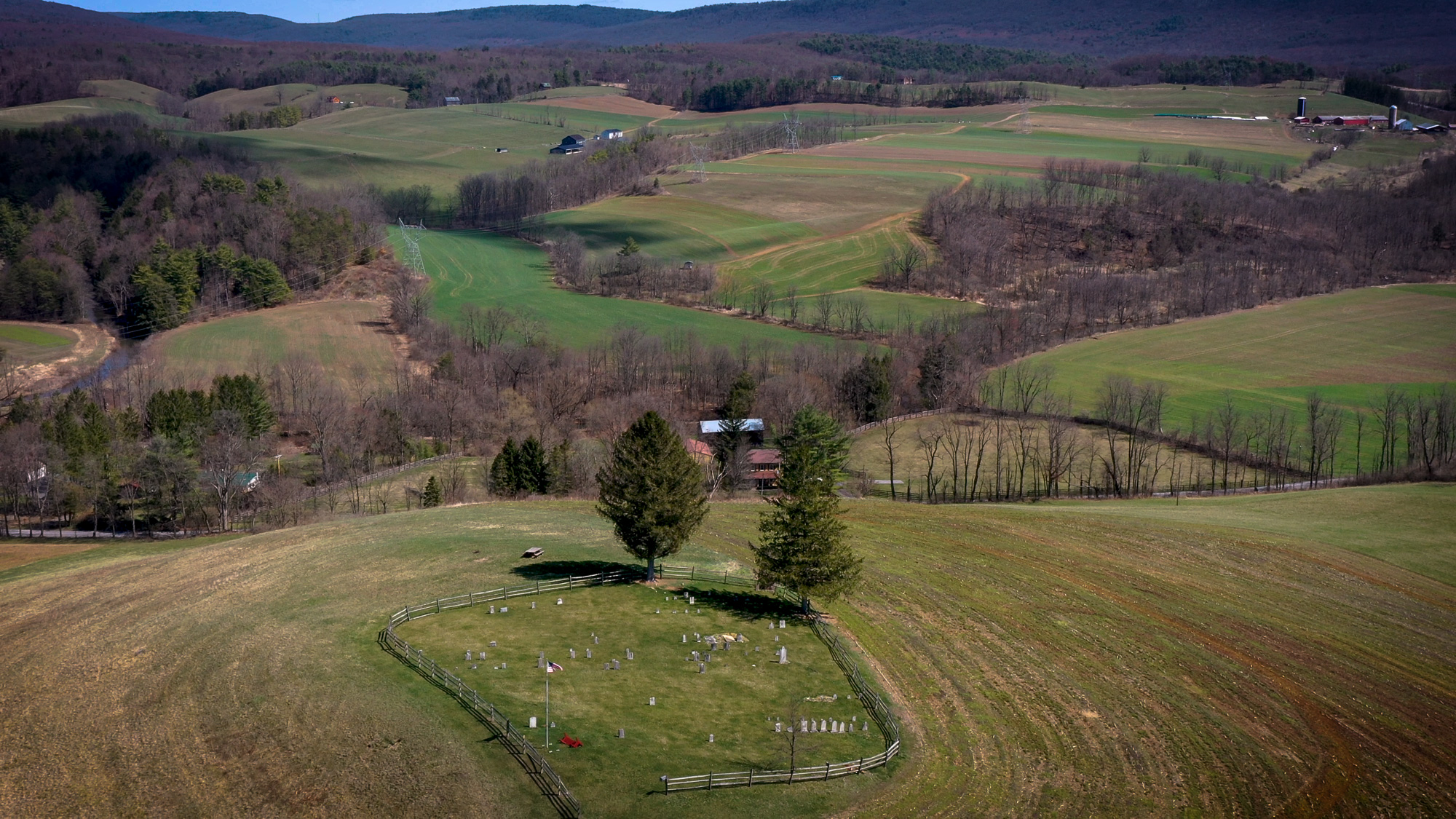
A view of Huntingdon County from above. “Particularly in these in these hilly, rural communities, it’s very difficult to get internet service,” RBC General Manager Henry McCreary says. “This wireless internet service that we offer is the real answer to being able to do it affordably.”
“From there, we make a radio connection to the top of Stone Mountain, where our radio tower broadcasts out to the local community,” McCreary says.
That tower on Stone Mountain is now one of two operated by RBC. Volunteers, private donations, and “sweat equity,” says McCreary, built the first tower in late 2019.
The second tower became operational in 2020 with the help of funding from the federal Cares Act, which provided billions of dollars in economic relief in response to the Covid-19 pandemic, a crisis that brought new attention to internet disparities in the U.S.
Mifflin County resident Ashley Suydam learned about RBC several months into the pandemic. At that point, she’d been driving her oldest son Jack into Belleville every weekday so he could use his grandparents’ internet to log in to his middle-school classes.
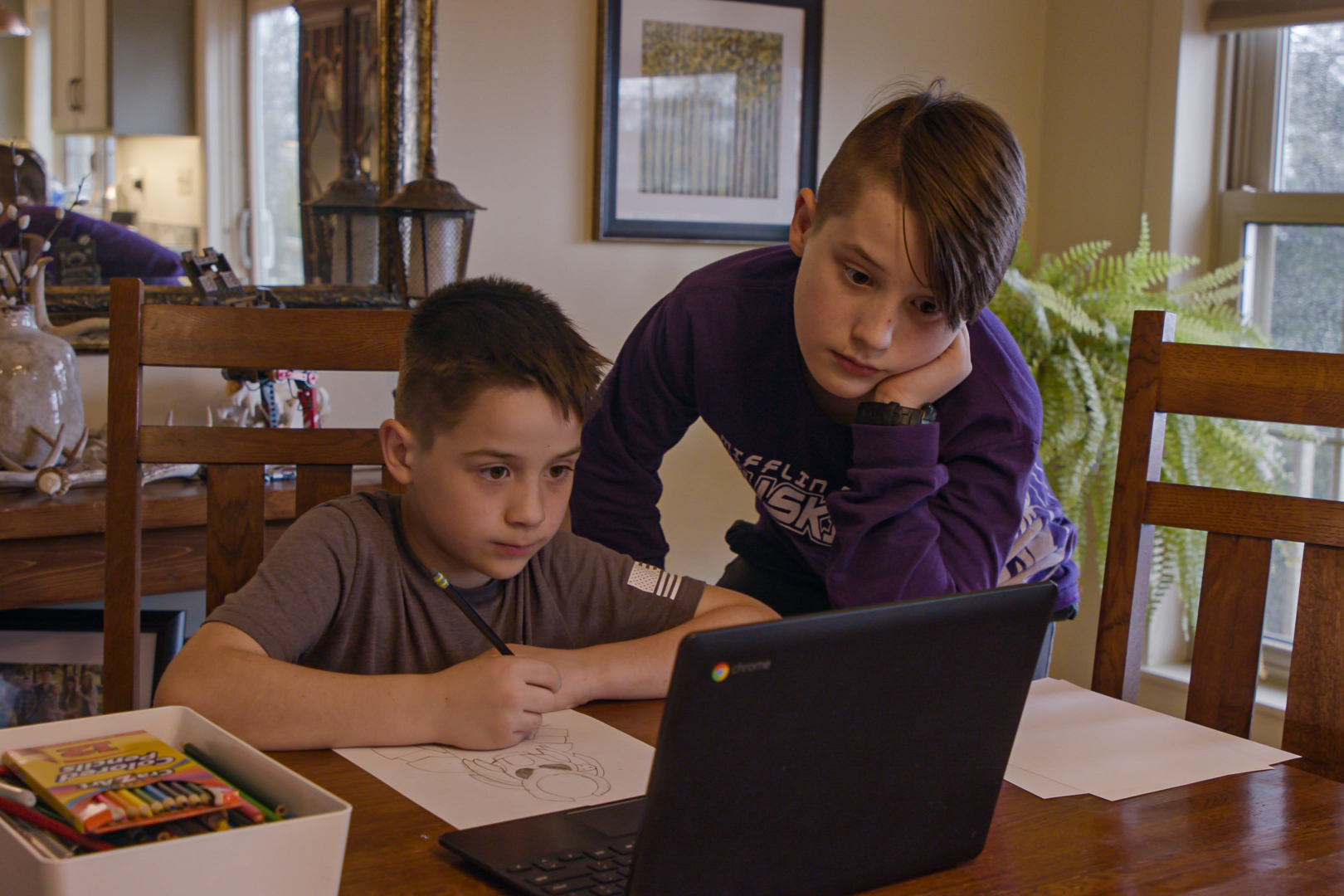
Ross Suydam, 8, and his brother Jack, 11, watch a drawing lesson on YouTube in their home, which had no access to the internet until Rural Broadband Cooperative installed a receiver on their back porch. “You take it for granted until you don’t have it,” their mom, Ashley Sudyam says. “Then you get it back and you realize just how lucky we are to even have that kind of technology.“
“It was a pain, but I’m a stay-at-home mom, so for me it wasn’t a problem, it was an inconvenience,” Suydam says. “But I really felt for parents who didn’t have that luxury of being able to stay home and stay on top of that kind of thing.”
When Suydam heard about RBC, she reached out to learn more and says someone responded the same day. “It was so exciting, the prospect,” she says. “But I didn’t tell my kids at first because they couldn’t believe we could possibly have internet.”
An RBC installer came to the Suydams’ home within days to survey the property and see whether they could be connected RBC’s service, either directly to one of the radio towers, or through a “repeater,” which rebroadcasts the wireless signal from one home to another from less of a distance.
As new customers come online, RBC adds more “repeaters” that extend the reach of the wireless signal to homes without a direct line of sight to the nearest tower. This allows more residents in the area better service at a lower price. RBC’s wireless broadband meets the FCC’s definition, and customers pay $75 per month for that service, or $40 per month for less bandwidth and lower speeds.
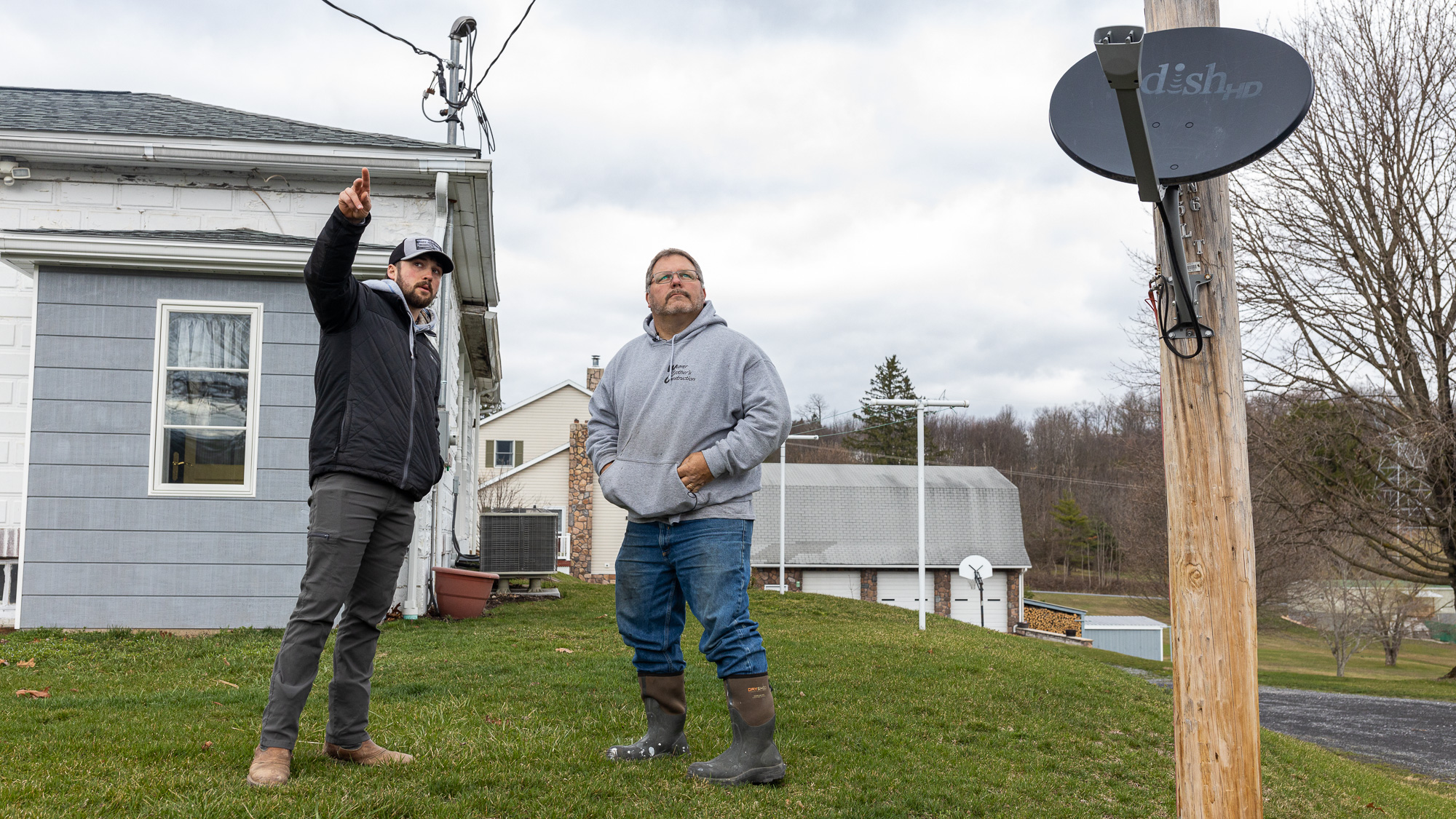
Rural Broadband Cooperative installer Brian Weaver (right) and local resident Chris Lapp discuss the possibility of getting wireless internet service at Lapp’s home. “We’ve waited for a long, long time,” Lapp says. “Most of us around here will do just about anything to get internet.”
“The bottom line is that we’re able to deliver an internet service that’s twice as fast for $30 less per month, or 10 times as fast for about the same cost as their prior internet service,” says McCreary. “And because we’re a nonprofit, we’re not incentivized to make gobs of money. As we grow, there will be an opportunity to lower our prices, and we intend to do that when we can do so affordably.”
Suydam’s long, painful internet story now has a happier ending, and she credits the neighborly spirit of rural Pennsylvania for the success of RBC. “People really do care about each other and they’re willing to go the extra mile for their neighbor,” she says. “RBC moved heaven and earth to get internet for us. They could have just said it’s not going to work, but they didn’t because they really care.”


